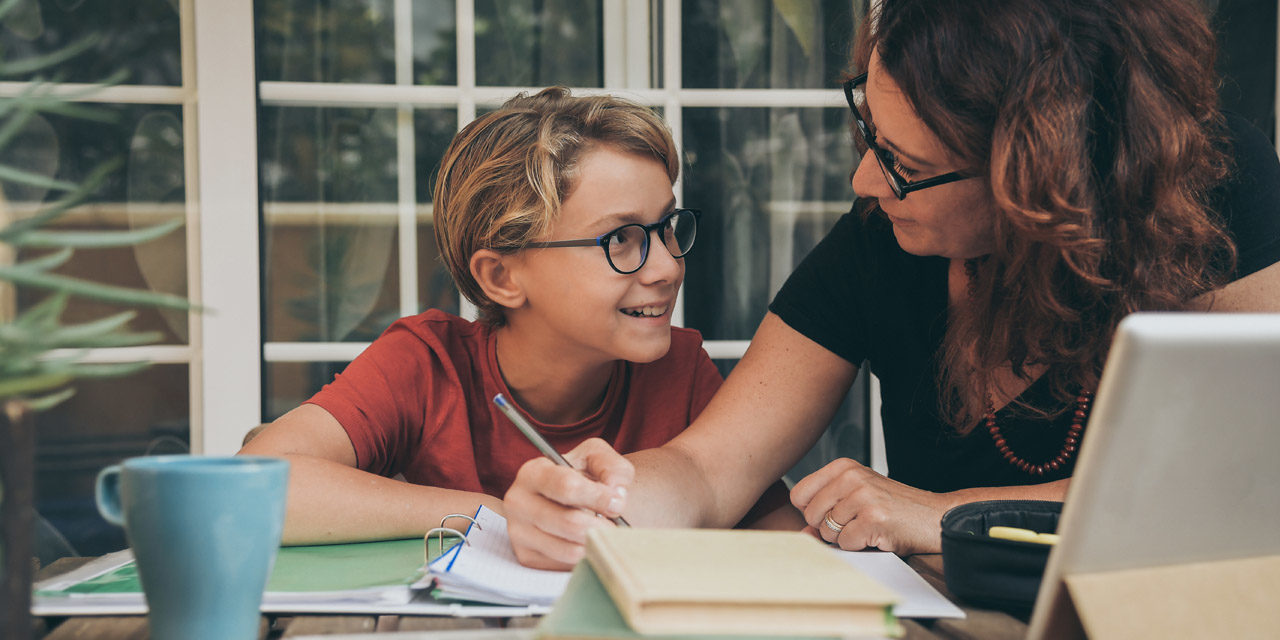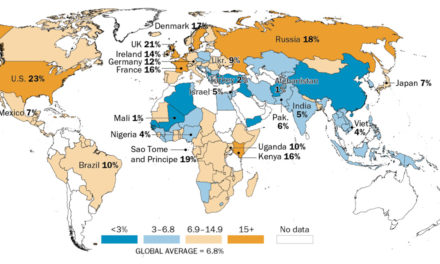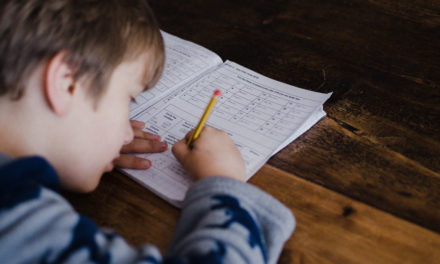There are increasing concerns among teachers across the country that forcing students into online classes due to the COVID outbreak is going to result in mass failures, as teachers across the country report that a staggering number of students are not turning in any assignments.
“It was completely off the rails from what is normal for us, and that was obviously very alarming,” Erik Jespersen, principal of Oregon’s McNary High School, said to The Associated Press.
In normal times, Jespersen reports that only about 8% of kids in his school are usually failing, this year the number is 38%. It’s not just that the students are failing, but some have a score of 0%, indicating that they haven’t turned in any work at all.
It’s not just in Oregon, but this is happening across the country. Reportedly, 40% of middle and high school students in New Mexico are failing at least one class. Houston reports that 42% of students have at least one F grade in the first grading period of the year. In St. Paul, Minnesota, at least 32% of students in the first quarter had Fs, which is about triple last year’s number of 12%.
Much of this has to do with learning from home, which is much easier for some students than it is for others.
A school counselor in Bloomington, Minnesota reports, “Some of them are caring for younger siblings. Some of them are maybe in homes that are more crowded – that maybe aren’t able to accommodate five or six kids studying independently.”
For students with learning disabilities and those who speak English as a second language, this time is especially difficult.
One school district in Houston is even bringing failing students back into the classroom after the New Year in order to help get those that are struggling back on track.
Much of this burden falls on the parents, who are, in many ways, more responsible than ever for their child’s education. A small home environment with multiple children may make it difficult for a child to concentrate and succeed or, if the parents have multiple jobs, there is really no way to hold the child accountable for his or her work.
Teachers spend much of their time trying to get the kids to concentrate, but, especially at the younger ages, there’s only so much they can do.
“I’ve had one student turn their cameras off during a lesson so I couldn’t see what they were doing after I asked them to stop messing around or one who was spinning around on her bed with the iPad so much that it was making me dizzy,” my sister, an elementary school teacher, shared with me.
“Parents also don’t realize that we can see and hear pretty much everything that’s going on in the home. Sometimes we can hear parents on a business call. If the child’s unmuted, sometimes there is swearing going on in the background or a sibling is getting a different lesson only feet away,” she said. “In one instance, a dad was shirtless while trying to fix something behind the student for a good 10 minutes.”
The students even complain to her about the background noise and ask their own classmates to mute so they can hear what’s going on. However, despite the challenges, most of the kids are responding to her lessons and one child even increased his reading proficiency recently.
Like so many other teachers, she’s doing a fantastic job despite the challenges, but there’s only so much she can do.
So, for parents who are worried about their child and their school performance, here are some tips from a teacher:
- Get a quiet and non-distracting environment for the student during school lessons.
- Separate siblings who are at different grade levels or get them headphones with microphones to minimize background noise and increase concentration. (My sister has seen one student really improve after she got a headset and microphone.)
- If you need help, reach out to your child’s teacher. Many are able to help or can provide you with additional resources or time to help your child succeed.
- Monitor their work and progress. A teacher on a computer screen can only do so much. As a parent, it’s also your responsibility to make sure that your child is turning in their work.
- For those who don’t have easy access to the internet or a computer, many school districts offer either computers, iPads or hotspots to students in need or do their best to help families gain access to these tools.
- Set up a schedule or routine, which is incredibly helpful to keep young students on track. This can be done through a timer. As Danny Huerta, the vice president of parenting and youth at Focus on the Family, says, “A timer can become a parent and child’s best friend as they try to manage multiple things, including attention span. There are plenty of fun and fancy timers on the market.”
Huerta has some other suggestions for parents looking to maximize this time at home:
- Some kids may benefit from sitting on an exercise ball for not only posture, but some movement. Having them get ready as if they would be going to school in the morning with routine in place helps children be more focused and engaged.
- Some time for a workout together each day, even if brief, is great for the brain and body. We do a workout as a family as we watch the Mandelorian. My son is studying Anatomy in high school and is in charge of leading the workouts for our family.
- Set goals and celebrations for each day and for the week. We have a list of responsibilities and goals that are on a clear jar. Our 3 teens, my wife, and I put marbles in as we contribute to the success of the family and when the jar is filled, we do a family celebration. Celebration can be getting food from a restaurant, a movie, a longer board game…We want to create a culture of celebration and important habits in the home.
- Write some notes on the mirror (with a dry/erase marker or chalk marker) reminding children of their identity or you can write a quote, a joke, or a word of encouragement. This can become a fun new habit/activity for your family as you look for fun ways to connect. I talk about this and more practical parenting tools in the book7 Traits of Effective Parenting or you can go to focusonthefamily.com/7traits for a free assessment and more parenting tips.
- The habits set up during the pandemic will most likely carryover post pandemic. This is an opportunity to help your kids hone in on some important habits. The parent, as teacher at home, knows his or her child very well and can help set up some accommodations that can help his or her child be more responsible and more engaged.
- I recently read that 49% of parents have abandoned some, if not all, of their previous rules regarding screen time. Why? This is going to be very hard to reverse post pandemic.
Hopefully as this pandemic winds to a close in the next several months, students can get back into the classroom and back on track.
Photo from Shutterstock






